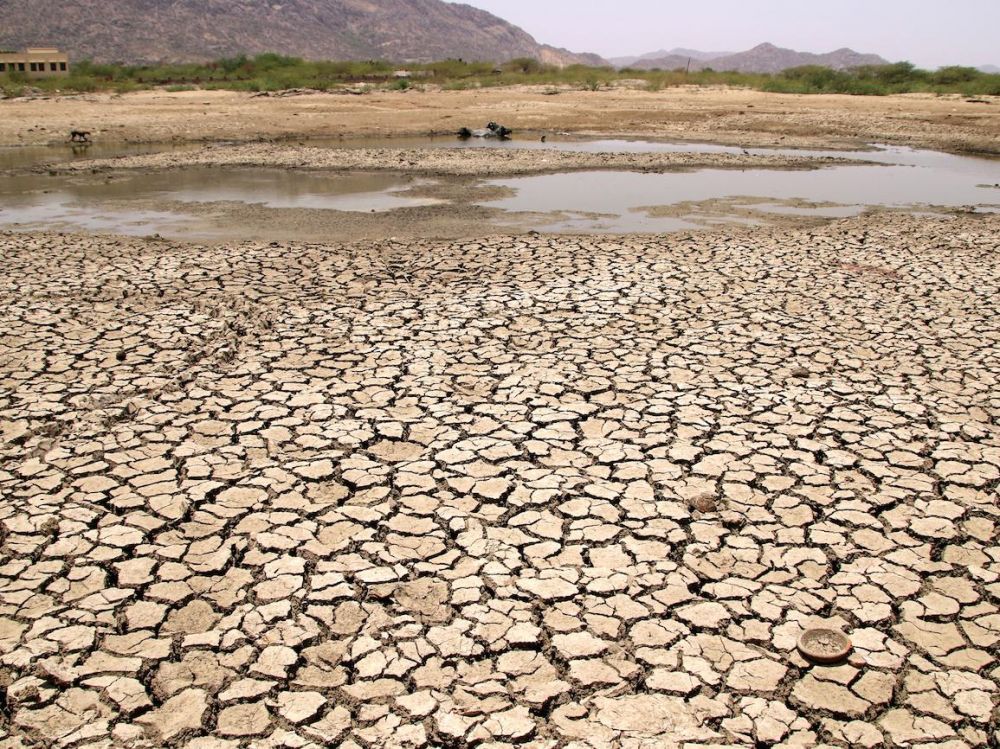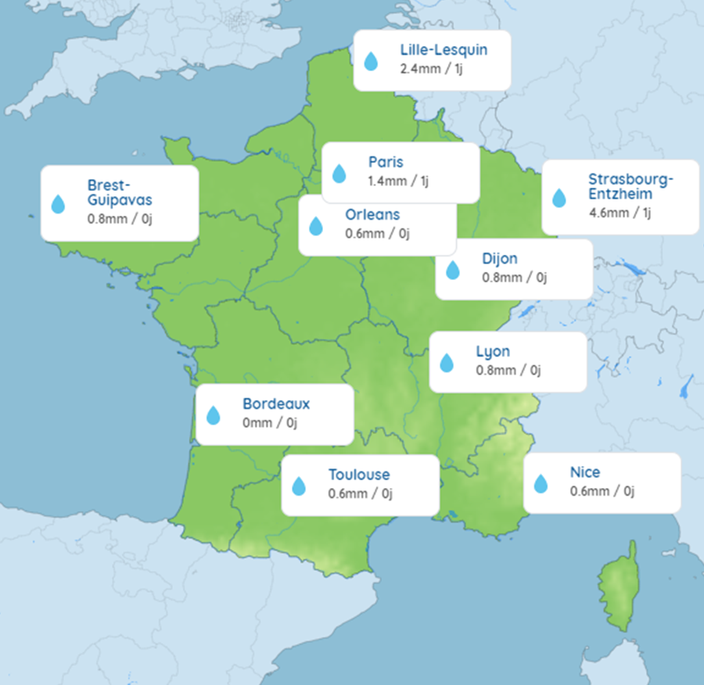
French farmers in trouble due to historic draught and rodents
No precipitation has fallen in France for a month, and in addition, this year is forecast to be extremely hot, which puts those living off the land in a very difficult position. In some departments, the negative effects of extreme weather conditions are compounded by the proliferation of rodents. Voles eat the roots of plants, destroying them and leaving farmers with nothing to harvest and feed their animals.
France is experiencing the threat of a severe drought, and although summer is still months away, it is clear even now that the lack of precipitation will cause dire problems. There has been almost no rainfall in the country since the first of February.

Meteo France pointed out that the complete lack of precipitation for a whole month is unprecedented in the history of the country. It leads to the total drying out of the soil, at a time when it is already in a critical condition due to the unusually dry and hot summer of 2022, the meteorology service wrote. Although rain is expected to fall this week, February can still end with a 50 per cent rainfall deficit, making this February one of the driest since the measurements started being recorded in 1959.
Serge Zaka, a professor of agroclimatology, has called attention to this problem on Twitter. He writes that a small amount of rain will not make up for the deficit, that would only be possible with weeks of continuous rainfall tallying at least 200-250 mm. For now, however, the chance of that happening are practically zero.
The expert also highlights the fact that the extreme drought will also make irrigation of crops near impossible. The water resources of Lake Montbel in Ariege department, in the south of the country, have dropped by 80 per cent since last February. Serge Zaka points out that the 36 thousand hectares of land in the vicinity is watered from that lake.
Dès le 22 février, la pluie sera de retour. Cependant les quantités attendues ne rattraperont pas le déficit abyssal. Il faudrait plusieurs semaines de pluies en continu et certainement 200-250 mm de pluie.
Ce n’est pas ce qui est envisagé.— Dr. Serge Zaka (Dr. Zarge) (@SergeZaka) February 20, 2023
Meteo France emphasizes that the February drought is much more severe than usual across the entire country. The conditions are similar to those customary in the middle of April, meaning that ground water levels began to decrease two months earlier. Certain regions are especially affected, such as Roussillon, Aude and the Pyrenees-Orientales regions, the meteorological service writes.
Christophe Bechu, France’s minister for agricultural protection spoke to France Info about the situation. He said that July 2022 has been the driest July since 1959, so at the end of the summer, farmers hoped that the winter will be abundant in precipitation and replenish ground waters, but that has not happened so far. If the groundwater is not replenished during the period from November to March, the risk of drought will increase, Serge Zaka emphasizes, adding that currently, there is no chance of enough rainfall to compensate for the 2022 drought. Serge Zaka compared the situation to a time bomb, threatening with devastating consequences.
Last summer was already extremely difficult for French agriculture. The country suffered from a historic drought leading to destructive fires. As our news agency reported, thousands of hectares of forest and bushland areas were destroyed by the flames in the western part of the country.
The record-dry summer caused serious disruptions in river cargo transport. The level of the Rhine River was so low that boats with the capacity of 2500 tonnes were filled to only 900 tonnes to prevent the bottom of the boats from scraping the riverbed. The port of Metz on the banks of the Mosel, a tributary of the Rhine, significantly decreased its activity due to the situation, although it is France’s number one river port for handling grains transport. France exports more than 2 million tonnes of cereals a year from there to the Benelux states, the Netherlands and Germany, but last year the level of the Rhine was especially low. Although grains storage facilities were full, the accumulated amounts could not be shipped out.
On top of difficult weather conditions, French farmers also have to fight another enemy, namely the voles. Farmers in Cantal and Correze departments are engaged in a bitter struggle with these rodents. One farmer told TF1 that he traps up to a hundred voles in his orchard day after day, but they are so populous that he cannot get eradicate them. A female vole gives birth to 4-8 offspring every 21 days, so their population multiplies easily and quickly. A 20-centimetre-long vole weighing 100-300 grammes can eat an amount of roots corresponding to its weight, killing the fruit tree under attack.
A farmer from Cantal county told BFMTV that his pastures are completely destroyed by rodents because they eat away the roots of the grass, so his animals will have nothing to graze on.
Les rats taupiers, le nouveau cauchemar des agriculteurs dans le Cantal – @cedricfaiche pic.twitter.com/CvgfVfGRxX
— BFMTV (@BFMTV) February 20, 2023
The farmer blames the mild winter for the proliferation of rodents, since the ground did not freeze through allowing voles to move about freely underground. Another problem is the ban on the use of bromadiolone, a pesticide that exterminated not only rodents, but also posed a danger to domestic animals.

